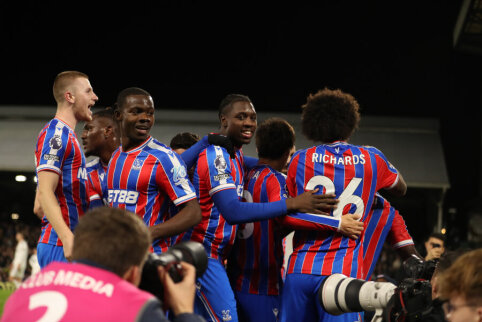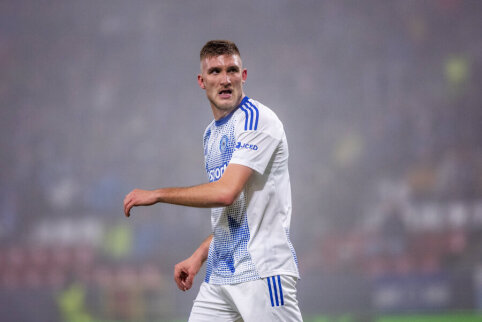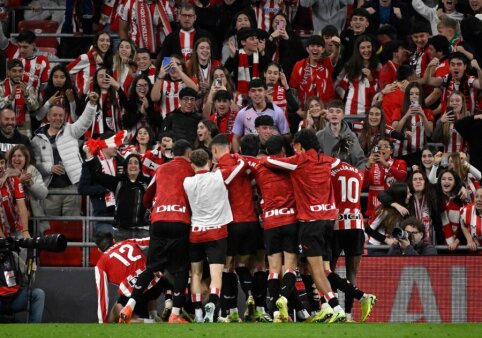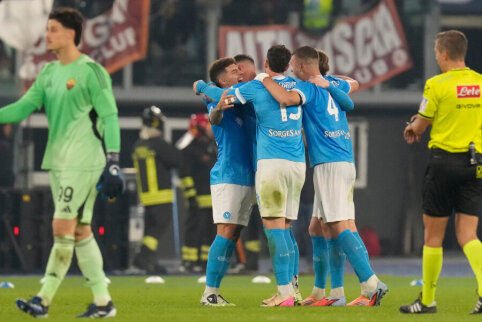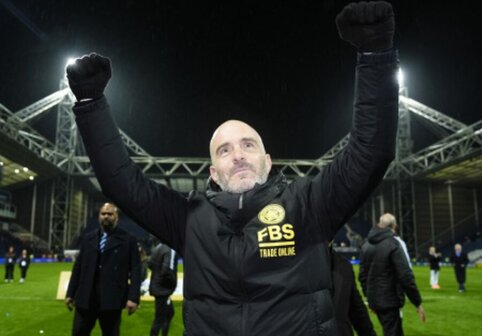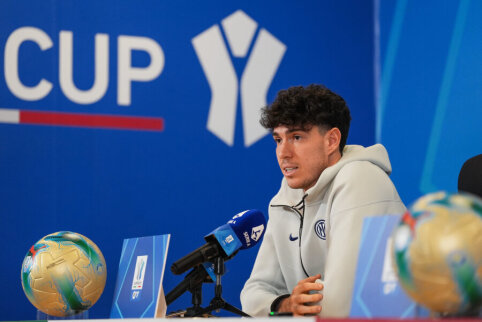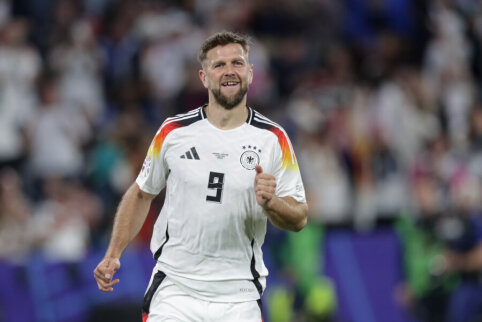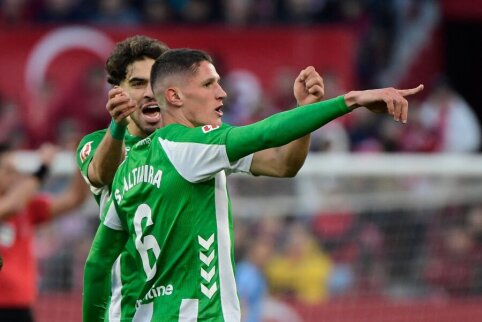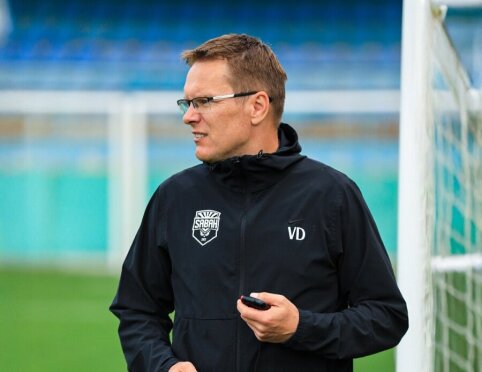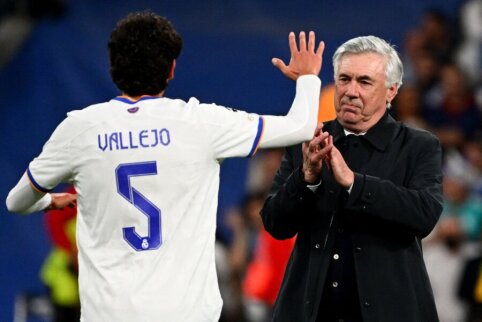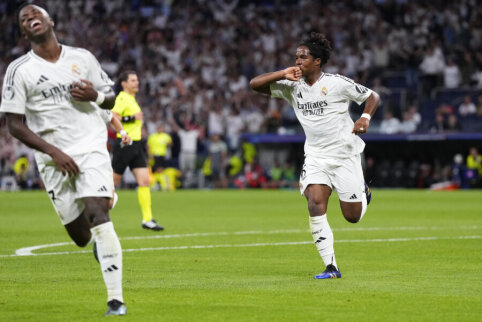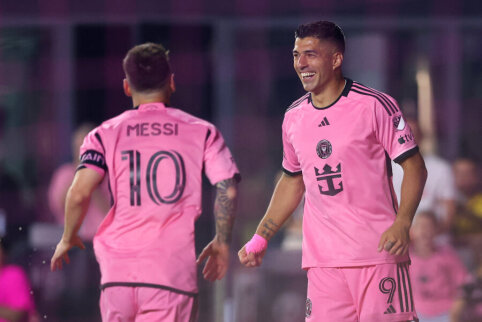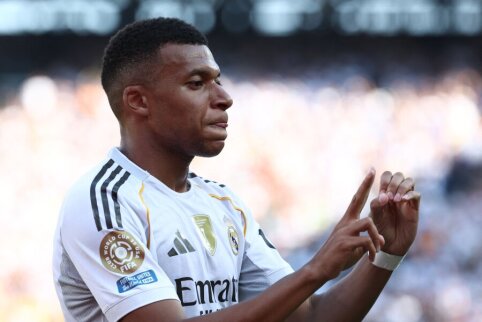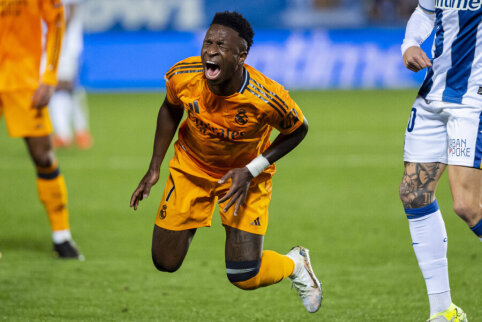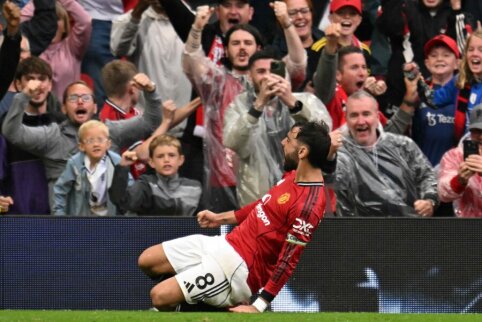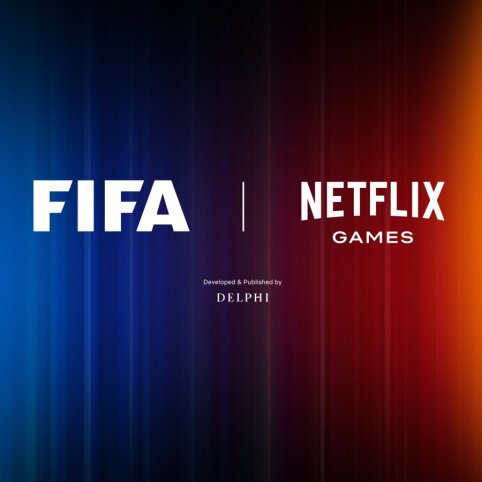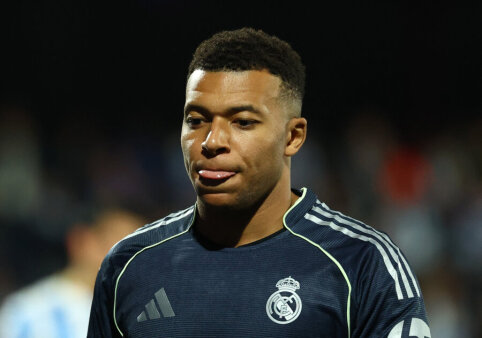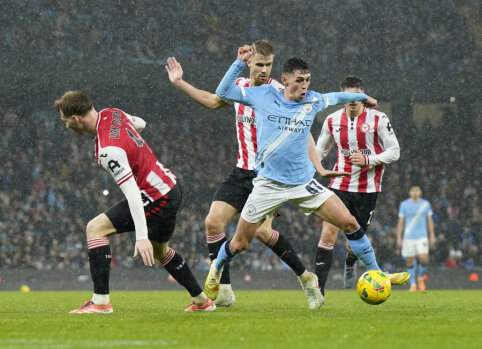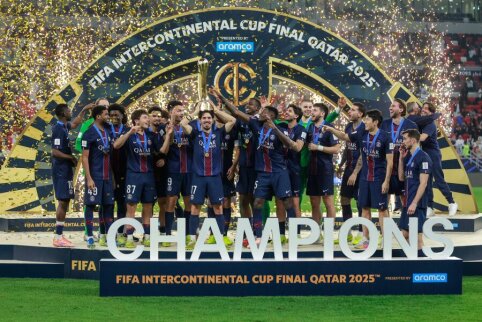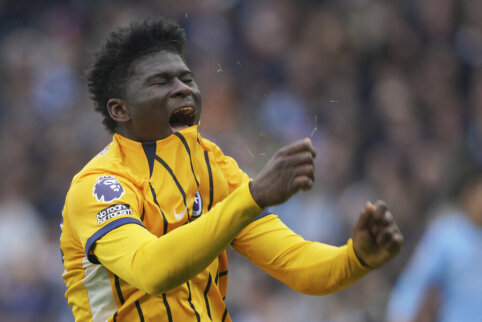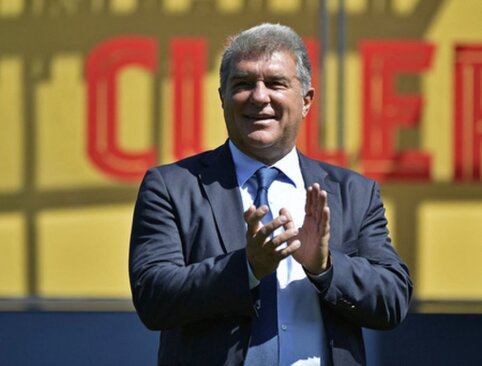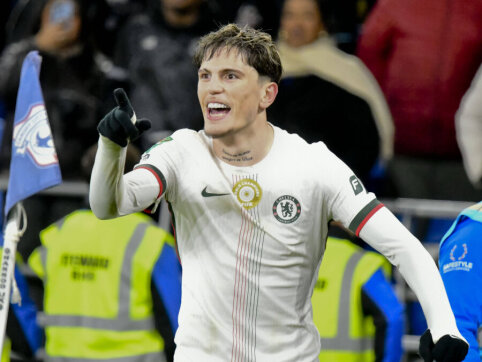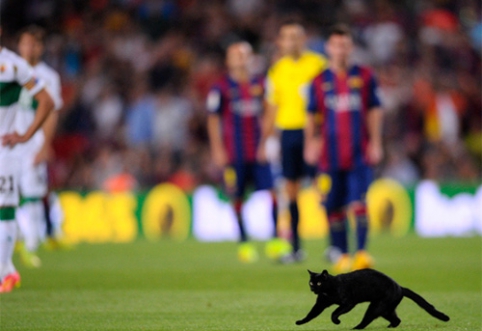
The bottom was reached. Or maybe not?
May 17, 2014. "Camp Nou" stadium. "Barcelona" plays the final match of the 2013-2014 Spanish championship season.
After the match, it became clear that it was the last game of the then team's head coach Gerardo "Tata" Martino, but let's remember what happened on the field.
Barcelona needed a victory and the "Primera" gold would come to them, but... Alexis Sanchez scored a goal and that would have been enough. Not to mention, Diego Simeone's Madrid "Atletico" army had to do without injuries in the same match after Diego Costa and Arda Turan suffered injuries in the same game.
But Fortune turned away from the hosts that night. Diego Godin scored and the result was 1:1 in favor of the "athletes".
True, Lionel Messi also scored, but his goal was not counted by the referee (by the way, incorrectly), but the Barcelona players didn't even argue - the team was the same. Indifferent, physically exhausted and morally drained, G. Martino's players just wanted one thing: to finish the season as soon as possible.
The season, in which the team was more crushed than ever before by scandals from the outside, dramatic losses, injuries, and fatigue. Neymargate, problems with L. Messi's taxes, the death of Tito Vilanova, G. Martino's father's death, looming FIFA sanctions for violations of young players' registration rules, constant fines.
When the result became equal, many fans inside probably realized the bitter truth - this team would no longer be able to reach the final summit, even when in front of them the "Primera" trophy was flashing in the stadium. It was not meant for Barca. This "Barca" did not need that award, they simply didn't deserve it.
The match ended 1:1. "Atletico" triumphed, and the "Camp Nou" stadium applauded the new champions honorably. They may be from Madrid, but they are not "Real". Consolation? Perhaps.
The Barcelona players silently slipped into the dressing room. The curtain fell.
For the first time since the gloomy 2007-2008 season, the Catalan club did not win any trophies. It was either a small end of the world or a big disaster. Whichever you prefer.
After the match, G. Martino confirmed what many had sensed - he was leaving and would not coach Barca for a second season.
Winds of change
Four days after Tata's departure, the Barcelona players got a new strategist - Luis Enrique.
The same one who during his time with Barcelona Atletico (which was then called current Barcelona B) said that to be a good coach, you don't need experience.
From the day those words were spoken until his appointment as Barcelona's head coach, almost five years have passed. During that time, Luis Enrique managed was work as the strategist of AS Roma. Then he took a break from football, ran ultramarathons, participated in ultratriathlons and "Iron Man" competitions; in other words, he 'cleared his mind', and in the 2013-2014 season coached Celta Vigo's footballers.
Luis Enrique's appointment as Barcelona's strategist did not become a major sensation, but it did not generate mass euphoria either. Fans wanted victories, and the club's leadership probably decided that there had been enough experiments and there was no need to hire a foreign specialist.
Despite the many praises before the season about Gerardo Martino's Newell's Old Boys' winning style, Lionel Messi's compatriot did not live up to expectations, though he was not the worst strategist.
All this is because Barcelona never needed a coach who would come to the club and bring his own ideas and playing style. Throughout its history, Barcelona has developed its own playing ideas, schemes, and football philosophy. Barcelona simply needed a man who would come and make all this work effectively.
In the summer of 2014, the club was shaken by changes.
With G. Martino's departure, his assistants Elvio Paolorroso and Jorge Pautasso also left. Half-heartedly, they said that those old-school people turned team workouts into routine and boring. They didn't pay enough attention to things like injury prevention, diet regulation, and so on.
Luis Enrique brought a team of differently thinking collaborators with him.
Physical football player readiness was taken over by young and ambitious Rafael Polis. He is a student of Paco Seirullo, who was a physical fitness trainer for Barcelona during Josep Guardiola's time at the club. He is a complete fan of his work. A fanatic with exceptional abilities. When he was 24 years old, R. Polis joined Luis Enrique's coaching staff at Celta Vigo, and since then these specialists have been working together.
R. Polis became famous for his approach to team workouts after matches, i.e., the so-called recovery sessions. This was something that the Catalans desperately needed when working with the team of G. Martino and his assistants.
Barcelona footballers often play two matches in a week, so it's completely understandable that the lack of a proper recovery process has a direct connection to the fatal consequences - injuries of varying degrees of severity, which Barcelona had in abundance during G. Martino's time.
"Training should be the same as matches. If not, then matches become training," revealing the essence of R. Polio's thinking with his own words.
"To prepare for matches and not to do in training something that could happen during a match is absurd," said P. Seirullo and young "Barcelona" specialist realized.
Those who still don't understand who R. Polis is can simply find out and compare how many hours the Barcelona players who suffered injuries spent during training in the last two years compared to the 2014-2015 season. The numbers differ almost 7 times.
Together with Luis Enrique, Juan Carlos Unzue also came - a former goalkeeper and goalkeeper coach who had previously worked at Barca during the times of Frank Rijkaard and Josep Guardiola. He started his own coaching career, albeit not very successfully, at Soria's Numancia team, but soon realized that training players was not his calling or that he was doing it too early. Given Luis Enrique's offer, C. Unzue did not hesitate.
Roberto Moreno and Joan Barbara - two other specialists, well known to Luis Enrique, with the latter having worked for a long time in the Barcelona youth academy.
And finally, the team now had a serious psychologist, a specialist who even Josep Guardiola did not pay much attention to. These duties were entrusted to Joaquin Valdes, another old acquaintance of Luis Enrique from the Barcelona Atletico days.
Goalkeepers continued to be trained by Jose Ramon de la Fuente - a former student of the Barcelona youth academy, who had worked with Tito Vilanova and Gerardo Martino. Luis Enrique knew the abilities of this specialist and fully trusted him.
It was much more difficult to find out what to train, as the team was left without Victor Valdes and Jose Manuel Pinto after the unsuccessful 2013-2014 season.
A so-called summer transfer window opened...
Blood transfusion
Barcelona managed to temporarily dodge a bullet in the FIFA case regarding violations of underage players' registration rules. The club was facing at least a one-year ban on registering new players, but it carefully postponed it by appealing the initial FIFA rulings which were unfavorable.
While Barcelona's appeal was being considered, they were allowed to strengthen their team with newcomers, and this opportunity was maximally used by the sports director, Andoni Zubizarreta.
Thirteen players left Barcelona in the summer of 2014, and nine newcomers joined the club. Much talk was sparked by discussions about strengthening the attack - correctly, and after agreeing on everything, Barcelona said goodbye to Alexis Sanchez, who, under G. Martino's leadership, excelled and wreaked havoc on the field, but... One can wreak havoc and shine alone, but if the entire team is not doing well, no one will appreciate it.
Barcelona decided to take risks.
The Catalan club decided to spend €81 million and bought Uruguayan Luis Suarez from Liverpool, who could not play until the end of October due to an incident with Giorgio Chiellini at the World Cup. Cesc Fabregas was sold, Carles Puyol ended his career, and a few players were loaned or sold to other clubs.
J. Ramon de la Fuente also received new wards - former San Sebastian Real Sociedad goalkeeper Claudio Bravo (whom Luis Enrique very much wanted personally - author's note) and Marc-Andre ter Stegen purchased from the Borussia Monchengladbach. It was only to decide how to divide the playing time between the two newcomers in goal.
It had already become a tradition for Barcelona scouts to visit the Sevilla camp. The Catalans did not forget about the Andalusians in the summer of 2014 - Ivan Rakitic arrived at Barca, who was supposed to replace Cesc Fabregas. As much as the Croat tried to distance himself from this role and claimed not to be the same as the "prodigal son" who went to Chelsea, journalists still hung this role on him.
Then, this is common. In Catalonia, you can say "A" one day, and the next day newspapers eager for sensations and spicy news will put "B," "C," and even "Z" into your mouth.
It was time for the season to start.
It all started with a black cat
During one of the first press conferences, Luis Enrique jokingly described himself as "tall, likable, and from Asturias." For many, this brought smiles and perhaps even laughter, but not everyone paid attention to another sentence by the new coach. He described himself as a leader, as a person who wants to be in charge, as someone who cares about everything everywhere and always. Every detail, every detail, every episode.
Barcelona did not show anything impressive in the preseason friendly matches, won the symbolic Joan Gamper trophies by default, and started the Spanish championship.
Empathetic and impatient critics began advising the coach what to do and how to play.
A newspaper published in Russia reached the peak of absurdity, with the author predicting in a pompous style that "the Joan Gamper trophy would be the only one that Luis Enrique and Barcelona would fight for in their first season." (I wonder how that writer feels now - author's note).
In the first round of the Spanish championship matches, where Barcelona at home faced the newcomer "Elche," the spectators at the Camp Nou stadium were amused by a black cat, probably running from curiosity and panic, meandering past the stadium lawn.
However, it must be acknowledged that the image of the cat's wagging tail, shining eyes, and twitching whiskers is not the most endearing, although it brought laughter to many. For superstitious people, the appearance of this animal is associated with misfortunes and the devil. Some try not to go the way the black cat crossed, others hold onto their pants and go backward, and then shake it off. Who knows, maybe Claudio Bravo is superstitious, but the goalkeeper was caught by camera leaving his goal when the "black cat" appeared at the pitch.
The cat was eventually caught by the stadium staff and "escorted" from the field, and this unexpected mackerel's visit turned out to be a benefit. For eight league games, no goals were conceded to C. Bravo. Barcelona won seven "dry" games and played a draw with Malaga. By the way, that match became the first unpleasant surprise of the season.
The Barcelona debut in the Champions League. In their debut match of the season, they defeated the Cypriot champion APOEL 1-0, but after that, was beaten 3-2 by Paris Saint-Germain, and Marc-Andre ter Stegen, who guarded the team's goal, faced the first criticisms from the media.
Although the start of the season was disappointing, it did not have fatal consequences in terms of the tournament, it revealed a dangerous trend: the Barcelona defensive line was not functioning.
This meant only one thing - if Barcelona could defeat many opponents by making use of their supposedly stronger squad "on paper," in matches against powerful opponents, Luis Enrique's pupils would face very significant troubles.
These fears were further confirmed in the first El Clasico duel of the season. It was the first official match played by Barcelona with Luis Suarez after he returned from suspension. The Uruguayan's debut was successful - he made an assist, Barcelona took the lead, but earned a defeat by 3:1 against Real Madrid.
The coach, who was still searching for the optimal lineup, did not shy away from experimenting even in consequential matches. To the astonishment of many, in the clash with Carlo Ancelotti's eleven, he sent Xavi into the field from the very first minutes, "placed" Luis Suarez on the right side of the attack (which meant that L. Messi played in the center - author's note), and entrusted the left-back role to the immobile Jeremy Mathieu.
The "laboratory experiments" ended in complete failure. Even though it seemed that the coach realized his mistake and tried to return Barcelona to its usual playing scheme. Real could simply swallow the Catalans in the center of the field - which, as is known, is the brain center of Barca, the command post, the summoning "center," the memory matrix, and a hundred-winged description.
As if that weren't enough, the next week Barcelona suffered another heavy blow in the national league. At their home fortress, they were defeated 1-0 by Luis Enrique's former team Celta Vigo.
The situations exploded.
Rumors spread that Luis Enrique had issued an ultimatum to L. Messi due to his supposedly unsuitable behavior and attitude towards training, and it was also claimed that the Argentine had issued an ultimatum to the club leadership - either him or the coach.
Furthermore, the day after Barcelona lost their appeal on the ban on registering new players, things began to spiral out of control. One head was fired- the sports director Andoni Zubizaretta. His deputy Carles Puyol resigned.
"I am grateful to the club for the opportunity to see its other side. In those four and a half months, I learned a lot and understood a lot. Now I just want to try something else in my life," mysteriously said C. Puyol, leaving conspiracy theory enthusiasts to speculate on what the "other side of the club" was that the long-time Barca stalwart and captain was now so keen to shake himself loose from.
The scandal was capped by Jose Maria Bartomeu's announcement that interim presidential elections would be held at the club this summer. The then-president had been urged to announce them since the beginning of 2014, when he took over the position from the resigning Sandro Rosell, but both J. M. Bartomeu and his team continuously stressed that they were capable and willing to continue.
Nevertheless, at the start of 2015, the atmosphere at the club was so abominable that the only explanation for the announcement of elections was the phrase "to relieve tension." Apparently, this was enough.
Even 68 percent of surveyed Barcelona fans were unhappy with the decision to dismiss A. Zubizarreta from his role as sports director, and two-thirds of fans demanded Luis Enrique's head.
Then came the middle of January...
To be continued...
fcbarcelona.lt
